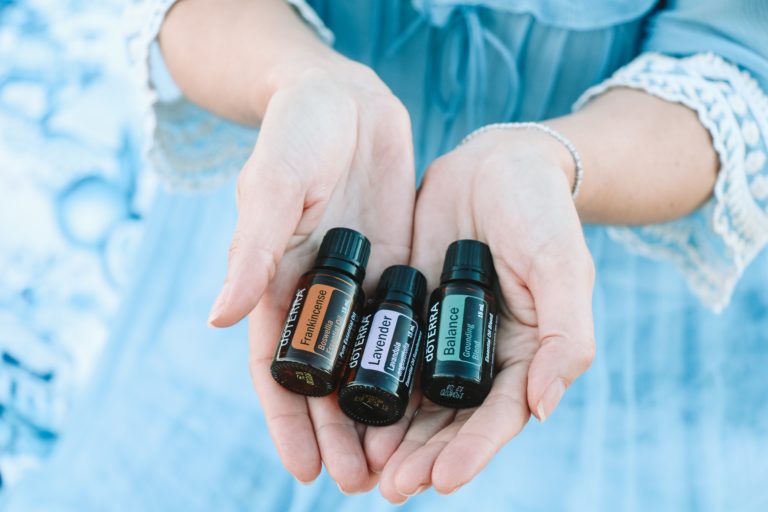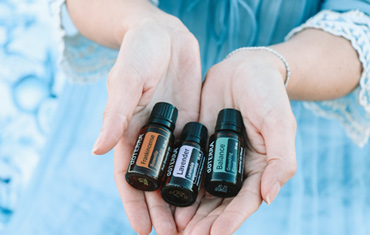Stephanie Pease, PA-C
There is little harm in taking over the counter supplements or essential oils when done correctly. Studies have shown they can be just as effective in relieving painful symptoms of osteoarthritis as non-steroidal anti-inflammatory drugs (NSAIDs) and aspirin. When considering taking a holistic approach to decrease pain and swelling, know that these solutions have been around for centuries. In fact, many pharmaceuticals were created using the same plants and herbs that are used to create these supplements.
Essential Oils

Essential oils can play a part in decreasing inflammation. While some essential oils can be ingested, the more common way to fight inflammation with essential oils is topically by massaging the oils into your skin over the problem area. Another way to use these oils is through a diffuser, which distributes the oil into the air. An enzyme that causes inflammation, called COX-2, can be decreased anywhere from 25-75% by using certain anti-inflammatory essential oils. Look out for these oils to help decrease your inflammation:
- Thyme
- Clove
- Rose
- Eucalyptus
- Fennel
- Bergamot
Over the Counter Supplements
Glucosamine and chondroitin are the ingredients in joint supplements that have a proven benefit to help with joint health and inflammation. Glucosamine helps build the cushion, called cartilage, between your bones at your joints. Chondroitin is believed to help with the flexibility of joints as well as maintain the fluid in joints. These supplements tend to be sold together as one. Other supplements with evidence that help decrease overall inflammation include:
- Type II collagen
- Turmeric/Curcumin
- Piperine taken with turmeric/curcumin will increase uptake of curcumin by 2000%
- Ginger root
These supplements can be taken as pills or powders, which can be used in smoothies or sprinkled into your food. Some studies believe getting the nutrients from the whole food version allows for better absorption in your body. Cooking with these foods can help decrease inflammation and may be more effective.
The Anti-Inflammatory Diet
Inflammation is a natural response from the body’s immune system to rid itself of foreign objects and begin the process of healing itself. It can be caused by physical injury, infection, or other toxins that are in the body. A lot of foods consumed by the average person these days are considered toxic by the body and can cause inflammation. The anti-inflammatory diet focuses on avoiding these foods and introduces other foods that help fight inflammation.
- Foods to Avoid:
- Processed/refined products
- Simple carbohydrates (white bread, crackers, white rice, sugar, etc)
- Soda
- Fried foods
- Red meat
- Shortening, margarine, lard
- Foods to Consume:
- Leafy green vegetables (spinach, collard greens, kale, etc)
- Fruits (strawberries, oranges, cherries, blueberries, etc)
- Tomatoes
- Nuts
If you’re looking at trying a holistic approach to decrease inflammation, it’s important to know that the results will not happen overnight. It may take time to notice the results of these methods, just as it would with the pharmaceutical options. Whether you want to try one of these options or all three, it doesn’t hurt to give it a try and help your body heal itself. If you want an expert’s opinion or are not seeing the results you hoped for managing your inflammation on your own, schedule an appointment to see Dr. Van Thiel today.
Disclaimer
The safety and effectiveness of supplements are not regulated by the FDA. Claims they make can be inaccurate and ingredients are not monitored. Choose a brand you trust with a good reputation. Always talk to your physician before taking a new supplement as it may interact with other medications. Do not substitute supplements for prescription medications as this should be done by your physician. Taking more of a supplement than is recommended can be harmful. Studies have shown that certain supplements taken in high doses can cause toxicity or have the reverse reaction. For example, some studies claim Vitamin C has anti-inflammatory properties, however, when taken in high doses it can cause bone spurs and advancement of arthritis.
About the Author:
Stephanie received a Bachelor of Science degree in Food Science and Human Nutrition and a Bachelor of Science degree in Kinesiology at the University of Illinois. During her 4 years there she helped conduct research on the cognitive effects of exercise on the body as well as improving nutritional supplementation on the market.





